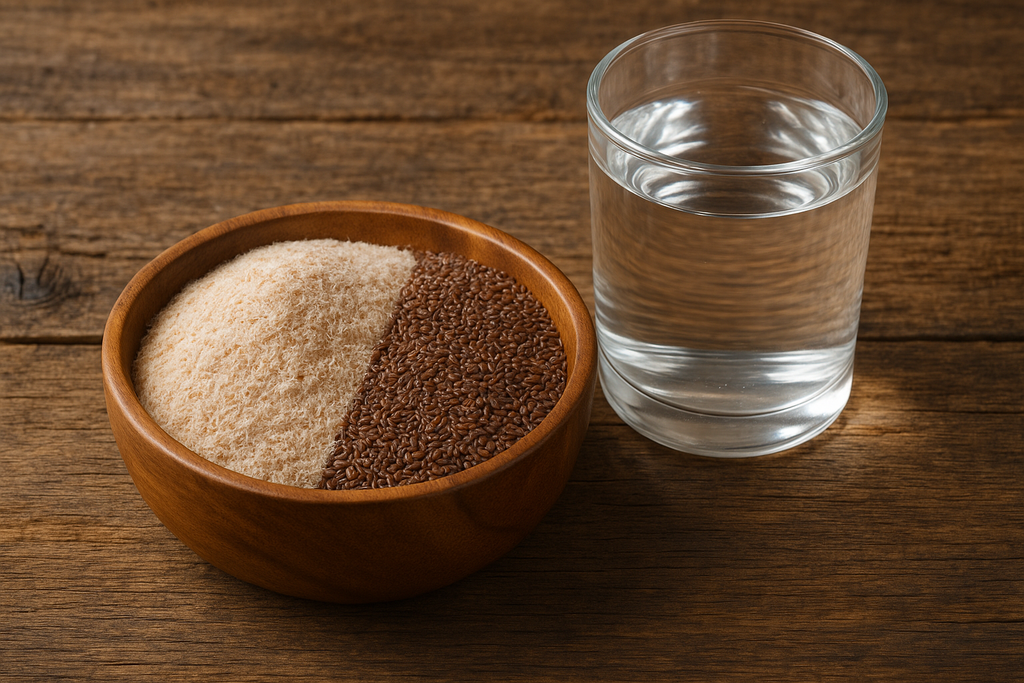News — glycemic index
The Metabolic Secret: How Psyllium Husk Lowers Cholesterol & Balances Blood Sugar
bile acid binding blood sugar control blood sugar stability cholesterol reduction constipation relief digestion fiber and metabolism glycemic index gut health healthy cholesterol levels heart health insulin sensitivity LDL cholesterol natural fiber supplement Plantago ovata prebiotic fiber psyllium husk soluble fiber type 2 diabetes management weight management
Hidden in plain sight on grocery store shelves, psyllium husk might just be one of the most underrated health tools in the wellness world. This humble fiber, derived from the seeds of the Plantago ovata plant, has been used for centuries in traditional medicine, but modern research is now confirming what our ancestors seemed to know: psyllium husk can do far more than just keep digestion regular.
Recent studies reveal that psyllium husk plays a powerful role in supporting metabolic health—particularly in lowering cholesterol and stabilizing blood sugar levels. For those grappling with high LDL cholesterol or the blood sugar roller coaster that can come with type 2 diabetes or prediabetes, psyllium offers a simple, natural, and inexpensive way to help restore balance. And unlike some dietary changes that require drastic overhauls, adding psyllium to your routine can be as easy as stirring a spoonful into water.
PCOS Diet: A Personalized Approach to Nutrition for Managing Symptoms
anti-inflammatory foods fiber for PCOS glycemic index healthy eating hormone balance insulin resistance low-GI foods managing PCOS meal timing for PCOS omega-3 fatty acids PCOS and blood sugar PCOS and hydration PCOS and weight management PCOS diet PCOS natural remedies PCOS nutrition PCOS symptoms personalized PCOS diet portion control supplements for PCOS
Polycystic ovary syndrome (PCOS) is a common hormonal disorder that affects millions of women worldwide. Characterized by irregular menstrual cycles, ovarian cysts, insulin resistance, and excessive androgen levels, PCOS can lead to a range of health issues, including infertility, weight gain, and metabolic complications. While there is no definitive cure for PCOS, adopting a personalized diet can help manage its symptoms and improve overall well-being.
Nutrition plays a pivotal role in balancing hormones, improving insulin sensitivity, and reducing inflammation, all of which are critical for managing PCOS effectively. A well-structured, individualized diet that focuses on nutrient-dense foods and eliminates processed sugars can significantly alleviate symptoms and enhance fertility. This article delves into the essentials of a PCOS diet, highlighting key foods, macronutrient balance, and lifestyle adjustments to create a sustainable, symptom-managing eating plan.
Forest Honey: A Natural Sweetener for Diabetes Management
antioxidants diabetes management diabetes-friendly diet forest honey forest honey benefits glycemic index healthy sweeteners honey for diabetes natural sweetener raw honey
Managing diabetes requires careful attention to diet, particularly when it comes to sugar and carbohydrates. While traditional sweeteners like white sugar and high-fructose corn syrup can cause blood sugar levels to spike, natural alternatives like forest honey offer a potentially healthier option. Forest honey, derived from the nectar of wild plants and trees, is rich in nutrients and antioxidants that may help regulate blood sugar levels while satisfying sweet cravings.
Unlike regular honey, forest honey has a unique composition that may provide additional health benefits, including anti-inflammatory and antibacterial properties. Although honey should still be consumed in moderation, it may be a better option for people with diabetes looking for a natural sweetener that won't cause dramatic spikes in blood sugar. In this article, we’ll explore the benefits of forest honey, how it differs from other sweeteners, and how it can fit into a diabetes-friendly diet.



